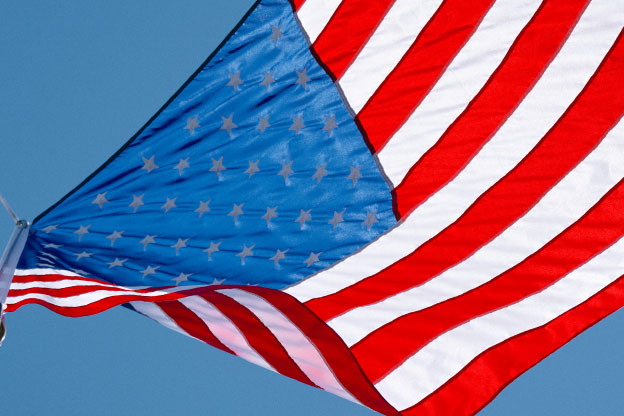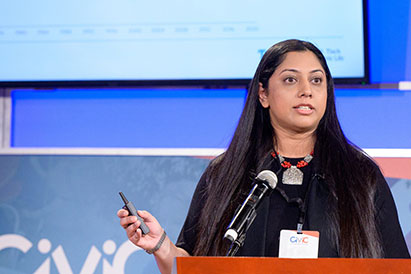On this Fourth of July, as we near the 250th anniversary of the establishment of this country’s independence, I urge you to take a pause before you bite into that barbecue and – amid the fireworks and the displays of flag – ask yourself some questions that can give this holiday the meaning it deserves:
What is the Fourth of July?
Yes, it is a national holiday, but it is not just a day to sit back, eat hotdogs, and watch parades, although I will certainly do all of those things. It’s the celebration of the birth of American Independence.
On July 2, 1776, the Continental Congress voted in favor of a resolution declaring the 13 colonies’ independence from the rule of Great Britain. Two days later, on July 4th, the Congress adopted the Declaration of Independence, the formal statement drafted by Thomas Jefferson of Virginia, John Adams of Massachusetts, Roger Sherman of Connecticut, Benjamin Franklin of Pennsylvania, and Robert R. Livingston of New York, officially declaring their separation from the English Crown.
Though Adams would write to his wife, Abigail, that this day should be celebrated through “Pomp and Parade…Games, Sports, Guns, Bells, Bonfires and Illuminations from one End of this Continent to the other,” he also noted that such merriment comes with responsibility. Adams and his cohort celebrated because they understood the cost of their freedom. While they wrote the Declaration of Independence a year into the Revolutionary war – nearly six years before it would end – they still rejoiced in the prospect of being an independent nation.
Take some time from the fun and the noise to actually read the Declaration of Independence, and ask yourself…
What does July 4th mean to me?
This is the day that we celebrate our freedom, but take a moment to reflect on how that freedom manifests in your life and your community. What would your life look like if you were not free? What would the country look like if it was not free? Is it truly free for all? Is this the America you want – and how could it be better? Try to picture America in its perfect form, in your eyes and the eyes of others. Think about, “How do I express my freedom? How do I protect it?” And then ask yourself…
What can I do to protect this country’s freedom?
The beauty of our constitutional democracy is that every one of us can play a part, be it voting, or changing a road sign, or helping to build a better local community. Protecting this country does not have to mean joining the military, but it always means engaging in democracy – because without our participation, it will cease to exist. We cannot engage, however, if we do not know how to engage. We must actually understand our democratic institutions and processes. For a primer or refresher, visit iCivics.org – or any number of online resources, and then ask…
How can I talk about this country with my family or friends?
Many of us share what we are grateful for on Thanksgiving. Such thoughtful discussion should also happen on July 4th. Share your hopes for this country with your family and ask them to express theirs. We may not always agree with each other, but compromise starts with conversation, respect, and a desire to understand one another. Be curious. Keep an open mind. Instead of trying to win an argument, try to know the hopes, fears, and lived experiences of the people you love to better understand their differing points of view. Then ask yourself…
How can July 4th offer a path forward in such a divided nation?
While our political differences seem to divide us now more than ever, I suspect we have much in common with our fellow Americans. But we must put in the work to reunite as a country. July 4th offers a lesson on how to do so.
Just look at Jefferson and Adams, both of whom died within hours of each other on July 4, 1826. As leaders of this country’s first two political parties, they were bitter rivals. But it’s important to remember that Jeffersons’ defeat of Adams in the presidential election of 1800 symbolized the first peaceful transfer of power from one party to another – and later in life, Adams and Jefferson reconciled over what united them: the crucial roles they played in establishing the United States of America.
This is the kind of reconciliation we as a nation need as we confront complicated challenges and questions.
A quarter century after Adams and Jefferson died, Frederick Douglass, the former slave and abolitionist, discussed just how difficult it can be to address the complexity of what it means to be an American.
On July 5, 1852, Douglass delivered a scathing speech, “What to the Slave is the Fourth of July?”, in which he both extolled our founding fathers for their bravery, yet excoriated them for maintaining slavery – claiming their freedom, but not extending it to those who were enslaved.
But Douglass believed in his country’s ability to transform: “Notwithstanding the dark picture I have this day presented of the state of the nation, I do not despair of this country […] While drawing encouragement from the Declaration of Independence, the great principles it contains, and the genius of American Institutions,” he wrote, “My spirit is also cheered by the obvious tendencies of the age.”
In today’s age, it’s easy to forget that freedom must be cultivated and maintained. July 4th is the perfect day to pick up that work and ask ourselves important questions about our great nation and the freedom it guarantees.
Emma Humphries is iCivics’ Chief Education Officer.



